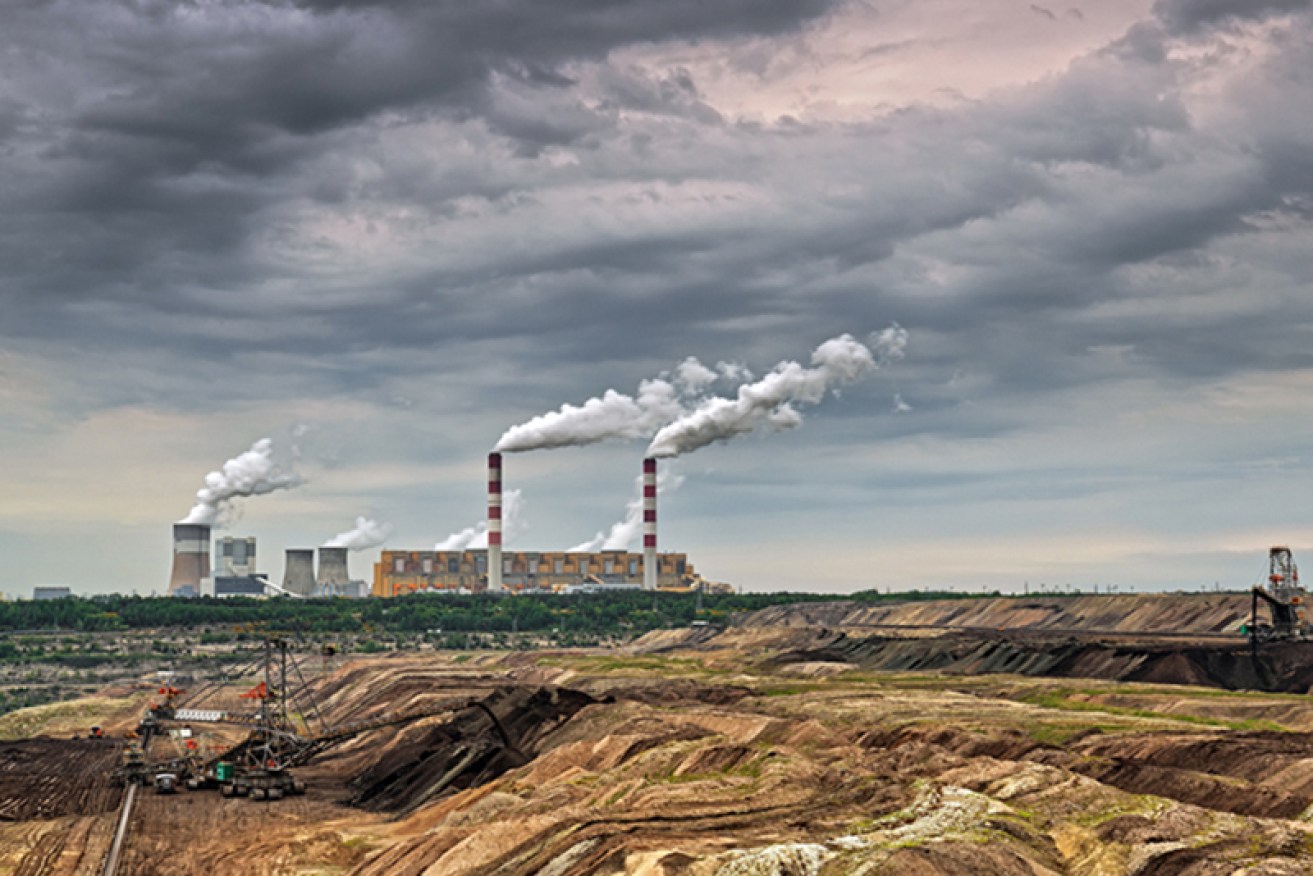How Australia could be destroying the planet


Australia could be single-handedly destroying the world’s chances of keeping global warming within safe levels – and it’s not because of our inadequate emissions targets.
The real culprit, claims one think tank, is the expanding coal industry, and the Abbott government’s apparent unwavering commitment to opening more mines.
• PM’s ‘dangerous’ emissions target unpicked
• Coal mining must end: Climate Council
• How big coal is plotting to win your heart
The Australia Institute claims that if current coal expansion plans go ahead, the world will quite simply fail to meet its targets.
“The Australia Institute’s research indicates that if Australia succeeds in its plans for massively expanding its coal export industry, then whatever the world agrees in Paris in December in terms of emission reduction targets for global warming will inevitably fail,” the institute’s deputy director Ebony Bennett told The New Daily.

Prime Minister Tony Abbott has positioned himself as a passionate proponent of the Australian coal industry. Photo: AAP
Ms Bennett said there was a “hole” in the global discussion on climate change, which focuses almost exclusively on consumption of fossil fuels, ignoring supply.
She said this oversight was “odd”, given no one would try to tackle a drugs problem without addressing their production and export.
With this in mind, The Australia Institute has called for a moratorium on new coal mines. The Institute’s Richard Dennis has travelled to Europe to lobby French President Francois Hollande to put the issue on the agenda ahead of the December climate summit in Paris.
Australia’s contribution to carbon emissions
Measured exclusively by its consumption, Australia does not perform well. With just 0.003 per cent of the global population, we account for 1.3 per cent of global carbon emissions.
But when you add to that the amount of coal we export, the number is massively magnified.
“Australia’s main contribution to fuelling climate change is through the coal we export, and we are looking to double our exports in the next 10 years,” The Australia Institute’s Tom Swann told The New Daily.
Quoting a 2014 report, Mr Swann said increased coal exports “would result in Australia being the source of 16 per cent of the global carbon budget by 2050, up from 4 per cent today”.
He said that if Australia is really serious about keeping global warming to below two degrees centigrade, we must leave 95 per cent of our coal in the ground.
The economic consequences

“With 15 per cent of the world’s population still without access to electricity – mostly in Africa and Asia – the need for coal will continue to grow”, says the Minerals Council of Australia.
Supporters of coal mine expansion may argue that the coal industry supports jobs, contributes to tax revenue, and provides returns to Australian ‘mum and dad’ investors and super members.
The Minerals Council of Australia claimed the coal industry “boosted national income by $40 billion” in 2013-14 and currently directly employs 41,100 people nationally, paying salaries worth $6 billion.
The Australia Institute downplayed the value of the industry’s value as an employer, saying in Queensland, the nation’s biggest coal-mining state, only one per cent of workers work in the industry.
On paper the coal industry is undeniably a massive corporate taxpayer. In 2013-14, it paid $12 billion in company tax, accounting for three per cent of total federal government revenue. Mr Swann claimed that much of this was lost thanks to fossil fuel subsidies.
The investment side
While coal may provide jobs and tax revenue, as an investment it is increasingly being viewed as a liability rather than an asset.
Last year, super funds HESTA and Local Government Super began winding down their investments in coal-related industries, while this year Commonwealth Bank and UK bank Standard Chartered backed out of their involvement in the huge Carmichael coal project in Queensland.
The Responsible Investment Association of Australia’s chief executive Simon O’Connor said this is more than just an ethical question. Coal is no longer seen as an viable investment.
“Those that call themselves responsible investors have been interrogating the risks posed by coal in Australia, and are probably better versed on this stuff than many. And I think there’s an understanding now that new greenfield coal project are seen as inherently risky, whether it’s a bank trying to issue debt, or whether it’s an investor taking a stake in a company.
“Fundamentally the economics are not strong.”
Have you read today’s other top stories?
The women who helped Jason live to fight another day
At 12 he lost his dad. At 19 he drank himself into oblivion. In 2013, he lost eight family members in a tragedy. Now he’s on top of the world. Read more.
Why a looming by-election could spell doom for the PM
The PM’s job is on the line with polls showing the Liberals’ under siege in a crucial battleground seat, write Paul Bongiorno. Read more.
Raid the archives: fashion is going back in time
One decade alone will define how we dress over the next six months. Here’s what’s coming to every store near you. Read more.











